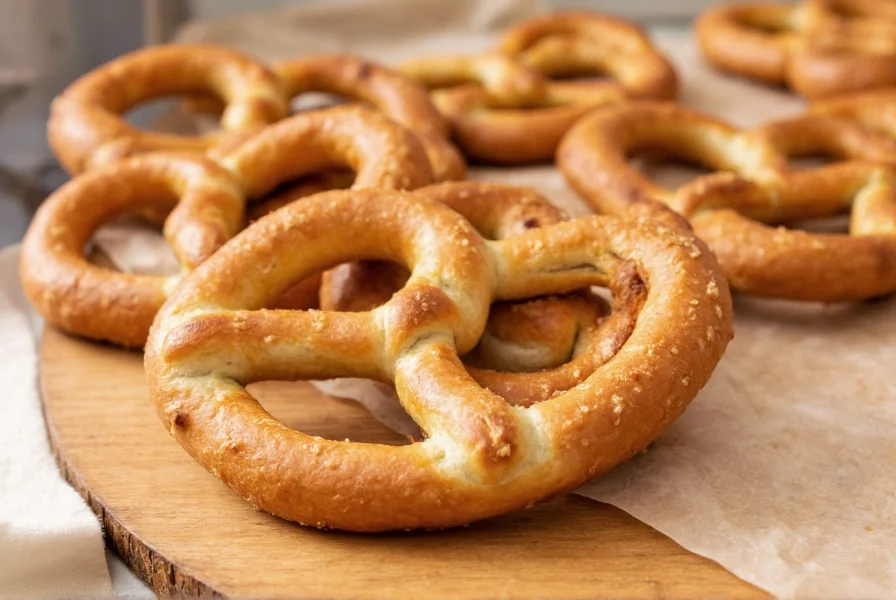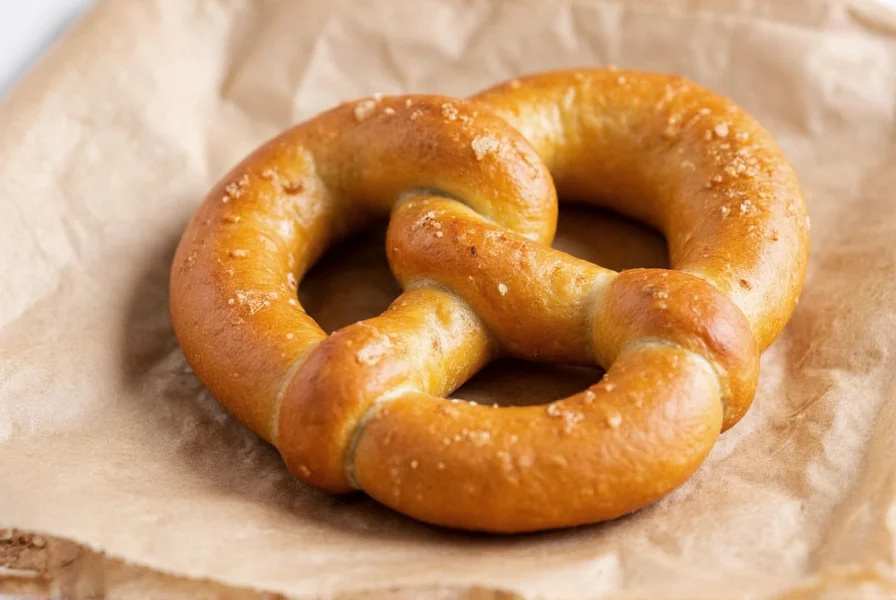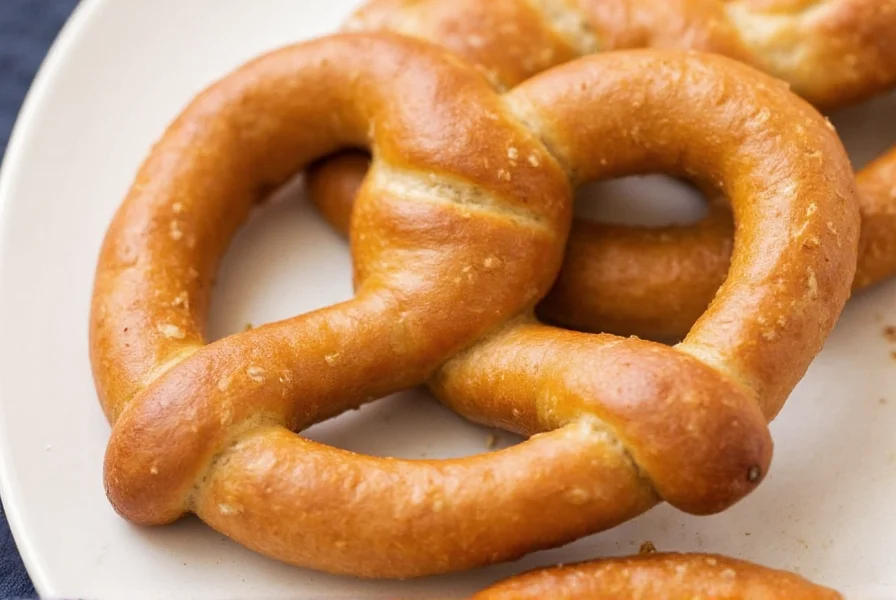Nothing compares to the aroma of freshly baked cinnamon pretzels filling your kitchen. These twisted delights combine the satisfying chew of traditional pretzels with the warm, comforting flavor of cinnamon sugar. While commonly associated with German baking heritage, cinnamon pretzels have evolved into a beloved treat worldwide, perfect for breakfast, snacks, or dessert.
The History Behind Cinnamon Pretzels
Cinnamon pretzels trace their roots to 17th century Germany, where bakers began experimenting with sweet variations of traditional salty pretzels. Originally called Zuckerbrezn (sugar pretzels), these treats gained popularity during holiday seasons. Unlike their Bavarian counterparts that feature coarse salt, cinnamon pretzels emerged as a festive alternative, particularly during Christmas markets where street vendors perfected the sugar-coating technique we enjoy today.
Essential Ingredients for Perfect Cinnamon Pretzels
The magic of exceptional cinnamon pretzels lies in ingredient quality and precise measurements. Professional bakers emphasize these critical components:
- Bread flour (12-13% protein content) creates the ideal chewy texture
- Active dry yeast that's fresh and properly activated
- Unsalted butter for richness without competing flavors
- High-quality cinnamon (Ceylon variety offers delicate flavor)
- Granulated sugar for optimal coating adhesion
Avoid common pitfalls like using baking powder instead of yeast or substituting all-purpose flour, which results in dense, bread-like pretzels rather than the desired airy chew.
Step-by-Step Cinnamon Pretzel Recipe
Follow these professional techniques for bakery-quality results at home. This homemade cinnamon pretzel recipe yields 8 perfect pretzels with golden-brown exteriors and soft, pillowy interiors.
Dough Preparation
- Dissolve 2¼ teaspoons active dry yeast in 1 cup warm water (105-110°F) with 1 tablespoon sugar
- Mix in 3½ cups bread flour, 2 tablespoons melted butter, 1 teaspoon salt, and 1 large egg
- Knead for 8-10 minutes until smooth and elastic
- Cover and let rise for 1 hour or until doubled in size
Shaping and Baking
- Divide dough into 8 equal portions
- Roll each into 24-inch ropes, twist into pretzel shapes
- Place on parchment-lined baking sheets
- Brush with melted butter
- Bake at 425°F for 12-14 minutes until golden brown
| Oven Temperature | Baking Time | Visual Cues |
|---|---|---|
| 425°F (220°C) | 12-14 minutes | Golden brown exterior, internal temperature 190°F |
| 375°F (190°C) | 16-18 minutes | Paler finish, risk of dry texture |
| 450°F (230°C) | 10-12 minutes | Deep brown, potential burnt edges |
Perfecting Your Cinnamon Sugar Coating
The best cinnamon sugar ratio for pretzels balances warmth without overwhelming sweetness. Professional bakers recommend:
- 4 parts granulated sugar to 1 part ground cinnamon
- Add 1–2 tablespoons melted butter to the coating mixture
- Apply immediately after baking while pretzels are still warm
- Use a pastry brush to distribute evenly before coating
For enhanced flavor complexity, try adding 1–2 teaspoons of vanilla extract to your melted butter before brushing. This subtle addition creates a more sophisticated flavor profile that complements the cinnamon without competing with it.
Common Mistakes and How to Avoid Them
Even experienced home bakers encounter challenges with cinnamon pretzel baking temperature and technique. Here are solutions to frequent problems:
- Dense texture: Over-kneading or insufficient rising time. Allow full 60-minute rise in a warm, draft-free area.
- Bland flavor: Using low-quality cinnamon. Opt for Ceylon cinnamon or a premium brand of Cassia cinnamon.
- Coating falls off: Applying sugar mixture to cooled pretzels. Always coat while pretzels are warm but not hot.
- Uneven browning: Inconsistent oven temperature. Use an oven thermometer for accuracy.
Variations for Dietary Preferences
Adapt this classic cinnamon pretzel dough recipe for various dietary needs without sacrificing flavor:
Gluten-Free Cinnamon Pretzel Variation
Substitute bread flour with 3 cups gluten-free all-purpose flour blend plus 1 teaspoon xanthan gum. Increase water by 2 tablespoons as GF flours absorb more moisture. Let dough rest 10 minutes after mixing to allow flours to hydrate fully before shaping.
Vegan Adaptation
Replace egg with 1 tablespoon ground flaxseed mixed with 3 tablespoons water. Use vegan butter substitute for both dough and coating. Ensure sugar is certified vegan as some processing methods use bone char.

Serving and Storage Tips
For optimal enjoyment of your soft pretzels with cinnamon, follow these professional recommendations:
- Consume within 24 hours for best texture (stale pretzels lose their characteristic chew)
- Store in airtight container with paper towel to absorb excess moisture
- Revive day-old pretzels by warming in 300°F oven for 5 minutes
- Pair with vanilla ice cream for an indulgent dessert
- Drizzle with cream cheese glaze for added richness
Many bakeries achieve their signature texture through a critical step often missed at home: brushing pretzels with melted butter immediately after baking but before applying the cinnamon sugar. This creates a sticky surface that ensures perfect adhesion without making the coating soggy.

Troubleshooting Your Cinnamon Pretzel Results
When your cinnamon sugar coating for pretzels doesn't turn out as expected, consider these fixes:
- Coating too sweet: Reduce sugar ratio to 3:1 or use superfine sugar which dissolves more readily
- Coating too spicy: Use a milder cinnamon variety or reduce cinnamon to 3 parts sugar:1.5 parts cinnamon
- Uneven coating: Toss pretzels gently in coating mixture rather than dipping
- Soggy texture: Apply coating to pretzels that have cooled too much; always coat while warm
Professional pastry chefs recommend making the cinnamon sugar mixture while pretzels bake so it's ready at the perfect application temperature. The residual heat from freshly baked pretzels melts the sugar slightly, creating that signature crisp yet tender coating we love.
Conclusion: Mastering the Art of Cinnamon Pretzels
Creating exceptional cinnamon pretzels at home requires attention to detail but rewards with bakery-quality results. By focusing on proper dough hydration, precise cinnamon pretzel baking temperature, and the ideal sugar-to-cinnamon ratio, you'll consistently produce soft, flavorful pretzels that rival professional offerings. Remember that the best results come from using quality ingredients, respecting rising times, and applying the coating at the perfect temperature window. With practice, you'll develop the intuition to adjust variables based on your kitchen's unique conditions for perfect cinnamon pretzels every time.
Frequently Asked Questions
What's the ideal cinnamon to sugar ratio for pretzels?
The professional standard is a 4:1 ratio of sugar to cinnamon. This provides noticeable cinnamon flavor without overwhelming sweetness. For stronger cinnamon flavor, use a 3:1 ratio, but avoid exceeding equal parts as this creates an unpleasantly spicy coating.
Why are my homemade cinnamon pretzels dense instead of chewy?
Dense pretzels typically result from insufficient rising time, over-kneading, or using all-purpose flour instead of bread flour. Ensure your dough doubles in size during the first rise (about 60 minutes), knead only until smooth and elastic (8-10 minutes), and use bread flour which has higher protein content for better gluten development.
Can I make cinnamon pretzels ahead of time?
Yes, but for best results, freeze unbaked shaped pretzels on a baking sheet, then transfer to freezer bags. When ready to bake, place frozen pretzels on parchment paper and add 2-3 minutes to baking time. Fully baked pretzels are best consumed within 24 hours, though they can be refreshed in a 300°F oven for 5 minutes.
What's the secret to getting cinnamon sugar to stick to pretzels?
The key is applying the coating while pretzels are still warm (not hot) and brushing with melted butter first. The butter creates a sticky surface that helps the sugar adhere without making it soggy. Professional bakers recommend brushing immediately after baking, then applying the cinnamon sugar mixture within 2-3 minutes while the pretzels are at optimal temperature for coating adhesion.











 浙公网安备
33010002000092号
浙公网安备
33010002000092号 浙B2-20120091-4
浙B2-20120091-4